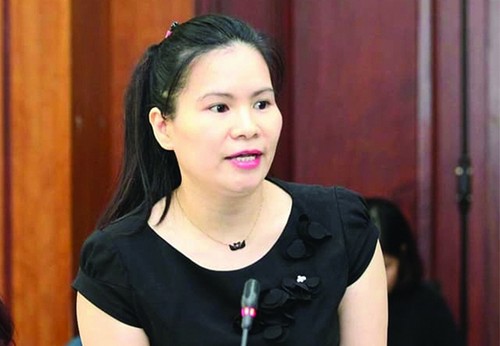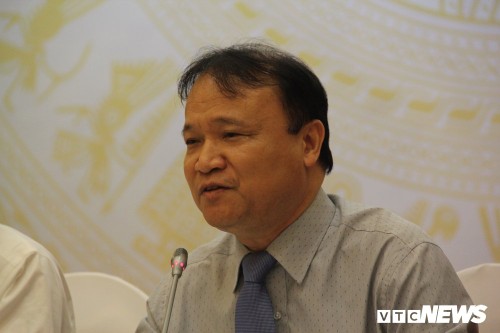 Phan Thi Thanh Xuan, Vice Chairwoman and Secretary General of LEFASO (Photo: haiquanonline.com.vn) Phan Thi Thanh Xuan, Vice Chairwoman and Secretary General of LEFASO (Photo: haiquanonline.com.vn) |
Last year processing and manufacturing contributed 25.6% of Vietnam’s GDP. Processed industrial products accounted for almost 89% of Vietnam’s exports. But COVID-19 and political instability in many countries led to a hike in transportation and logistics costs and caused Vietnamese businesses to lose orders and run short of production materials.
Phan Thi Thanh Xuan, Vice Chairwoman and Secretary General of the Vietnam Leather, Footwear and Handbag Association, said Vietnamese businesses need to secure raw material sourcing and digital transformation this year.
She insisted on the importance of taking the initiate in producing raw materials in Vietnam and continue to develop support industry parks, especially ones serving high-quality and high-value products.
“Digital transformation is a way to improve management quality and reduce costs, which will enhance business capacity,” said Xuan.
Ha Vu Son, Director of Can Tho city’s Department of Industry and Trade, said easier capital access is needed to stabilize production and trading.
“Despite the Prime Minister’s direction at the conference of Mekong Delta provinces, capital sources for businesses remain limited. This is a very important issue. The Can Tho Department of Industry and Trade keeps asking the Prime Minister and the State Bank to issue clear guidance so credit institutions can help businesses overcome difficulties,” said Son.
The industrial growth of localities in 2022 shows that local advantages and potentials need to be tapped for both short- and long-term industrial growth.
The Ministry of Industry and Trade says it will help industrial businesses and localities with growth potential outline industrial development strategies in line with local advantages and resources.
The Ministry will continue to promote the construction and operation of technical centers to support industrial development in the north and south.
The construction of two centers is expected to begin in the first quarter of this year and eventually connect local centers for technology and production techniques, and supply and demand, and become a trading floor for industrial products and support industries in the region.
 Deputy Minister of Industry and Trade Do Thang Hai (Photo: VTC) Deputy Minister of Industry and Trade Do Thang Hai (Photo: VTC) |
Under the Ministry’s plan, industrial development support centers will be built in key economic regions to support innovation and provide technical assistance to industrial enterprises, especially small and medium-sized enterprises, said Deputy Minister of Industry and Trade Do Thang Hai.
He said the Ministry is completing a new law on industrial development to submit to the National Assembly for approval during the 2023-2024 period which will serve as a legal basis for industrial development.
“Resources will be maximized to invest in production and trading, especially in large spillover projects to create new growth drivers for national economic development,” Hai added.
In 2023, the industry and trade sector will help businesses find raw materials for production to guard against the risk of supply chain disruptions. It will be a priority to ensure these supplies through appropriate policies.
Programs will continue to connect businesses to the supply chains of FDI and other big enterprises. Obstacles to putting key industrial projects into operation will be removed. Solutions will be comprehensively applied to stabilize production, balance the supply and demand of essential commodities, and meet the demand for energy.